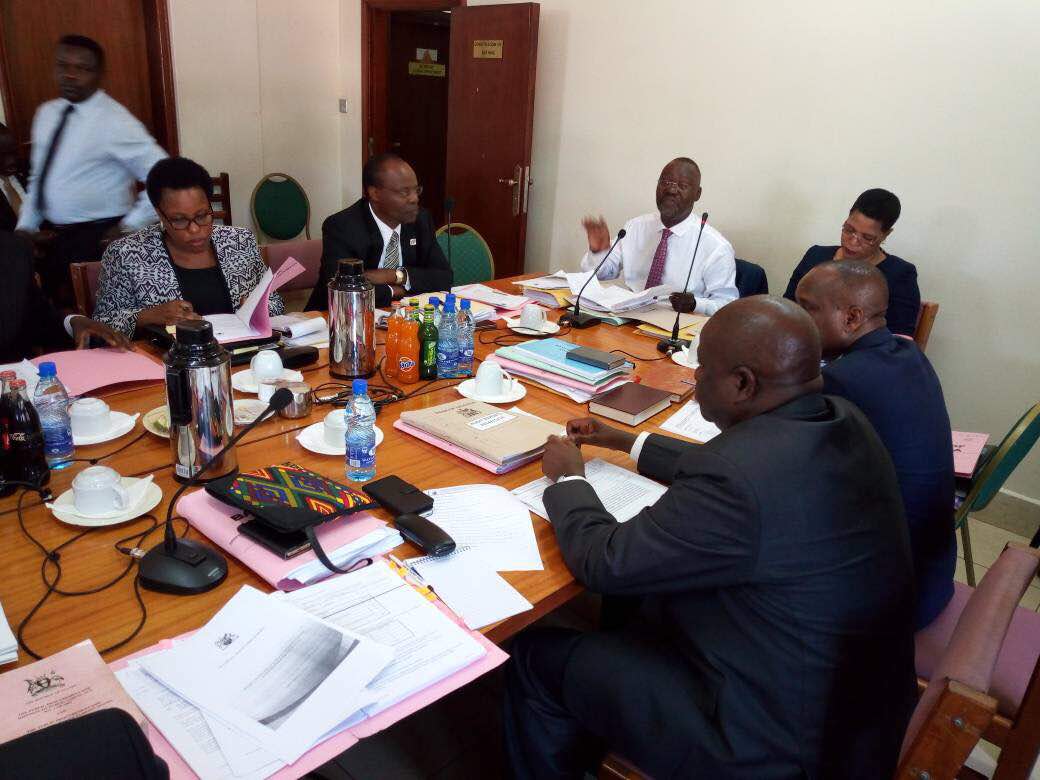Mumba Kalifungwa, Absa Uganda’s Managing Director and Michael Segwaya, the bank’s Chief Finance Officer and Executive Director during the release of the bank’s 2020 financial results.
Absa Bank Uganda’s total assets increased by 3.5% to Shs3.54 trillion, up from Shs3.42 trillion recorded in 2019, according to the bank’s financial statements for the year ended December 2020,
Despite the impact of the COVID-19 pandemic, the bank also registered an increase in customer deposits. Deposits increased to Shs2.35 trillion in 2020, up from Shs2.18 trillion registered a year earlier, representing an 8.1% increase.
Owing to the COVID-19 lockdown which characterized most of 2020, loans advanced by the bank to customers reduced slightly to Shs1.3 trillion, down from Shs1.33 trillion recorded in 2019.
The challenging year saw the bank post Shs40.7bn profit in 2020, down from Shs78bn in 2019. The bank, however, earmarked Shs20bn for dividends to shareholders.
Costs remained well controlled with a 4.9% year-on-year growth, in line with core inflation for the year ended December 2020. This was on the back of better cost management and continued investment in technology platforms to increase efficiencies.
During the release of the results recently, Michael Segwaya, Absa Uganda’s Chief Finance Officer said the underlying performance of the bank – as measured by the profit before impairment and tax – remained strong throughout the year, serving as a testament to Absa’s resilience despite the tough economic environment.
“Profit after tax was significantly impacted by the increase in impairment provisions, coupled with the decline in Non-Funded Income. The bank remains profitable and continues to deliver positive returns on equity for shareholders,” Segwaya said.
Speaking at the same event, Absa Uganda’s Managing Director, Mumba Kalifungwa, said the bank achieved total revenue of Shs316bn despite a tough year owing to the economic impact of the COVID-19 pandemic and further stated that the bank remains committed to providing financing to the economy to facilitate trade, commerce and capital formulation for business growth.
“The COVID-19 pandemic necessitated an accelerated investment in digital platforms to ensure business continuity in light of the measures that were introduced to curb the spread of the pandemic. We have prioritized investment in innovation as we seek to leverage the strength of digital technology to create seamless experiences for our customers and consequently, realize our ambition to become a digitally-led bank,” he added.
With a capital ratio of 23.9%, the bank remains well capitalized way above the regulatory requirement of 12%.
In line with the Bank of Uganda COVID relief measures, Absa provided credit relief support to 1,437 customers in economic distress to help them navigate the challenges brought on by the pandemic, Kalifungwa said.
Looking to the future, Kalifungwa remained optimistic about the strides being made towards economic recovery.
“I would like to commend the Ministry of Health on its efforts to combat the pandemic. With increased access to the vaccine both locally and globally, we anticipate a pick-up in key sectors including international trade, Agriculture, Construction, Manufacturing and Services sectors,” Kalifungwa said, adding:
“We intend to invest in sectors crucial to socio-economic development and economic recovery by growing private sector credit. The economy has shown resilience and I am optimistic it will recover from the contraction we witnessed last year.”






